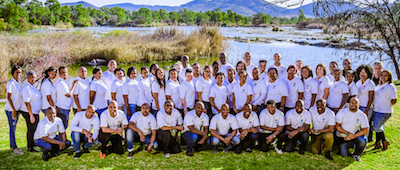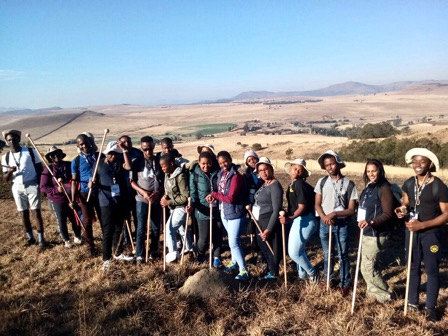 Young Paul Nkosi’s whole future changed when his school identified him as a learner who needed a kick in the right direction.
Young Paul Nkosi’s whole future changed when his school identified him as a learner who needed a kick in the right direction.
Paul was a pupil at Tembisa Secondary School in Midrand, which had problems with discipline, absenteeism and poor sanitation, and Nkosi had repeated grade 9 because he fooled around more than he studied. Then he was chosen to attend an intensive six-day residential academy run by Columba Leadership, an organisation that gives school staff and pupils the leadership skills and vision to tackle their own problems. Paul and 11 classmates worked with the principal and two teachers to become ‘change agents’ improving the school from the inside out.
“The Columba programme motivated me school-wise and socially to take responsibility for my life. It’s a very magical thing that it does. You get so much fulfilment there as a young person,” he says. “When you come back from the academy you want to change things in your space.”
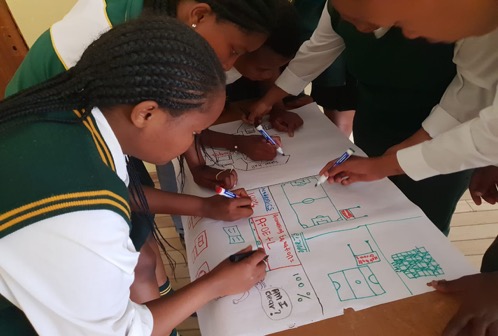 Paul began doing well in class and his newfound leadership ability saw him play an influential role. He’s now with Absa’s Ready to Work programme, visiting schools to teach entrepreneurship, money management, people skills and what to expect in the working world.
Paul began doing well in class and his newfound leadership ability saw him play an influential role. He’s now with Absa’s Ready to Work programme, visiting schools to teach entrepreneurship, money management, people skills and what to expect in the working world.
South Africa’s education system is riddled with problems, but Columba has seen inspiring results in 176 schools it has worked with. Its success lies in creating the opportunity for learners to be become an active force for good, rather than the dejected or disengaged youngsters that some have become.
“It’s really about unlocking the potential of people to create changes from the inside out,” says CEO Tracy Hackland. “In our experience young people want to bring positive change if you open up the space for them to be involved. They are frustrated by all the negative things in their communities and this equips them to start doing something rather than be passive.”
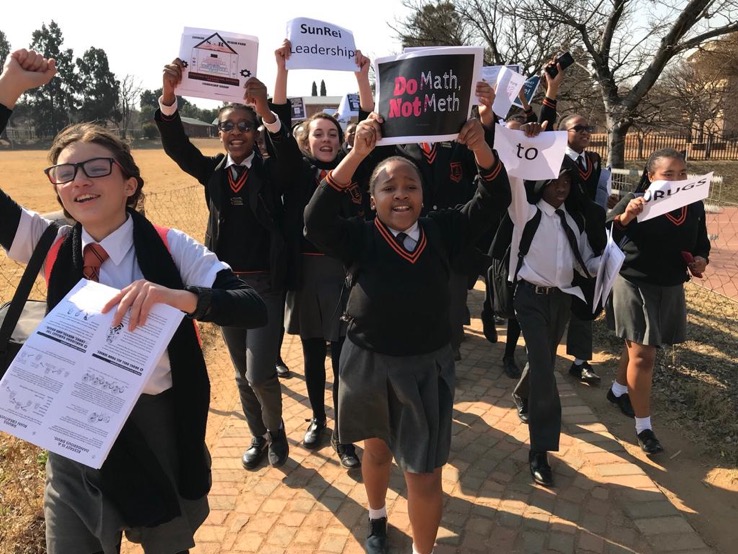 The idea was brought to South Africa by Rob Taylor, a former director of Dimension Data, who first saw the programme working with underprivileged youths in Scotland.
The idea was brought to South Africa by Rob Taylor, a former director of Dimension Data, who first saw the programme working with underprivileged youths in Scotland.
Organisations that sponsor it can send four of their own executives on each annual academy, and they also return invigorated and inspired. “So you give but you gain more, because the impact of sending four leaders comes for free,” Rob says.
Schools must apply to join the programme, because it takes dedication and hard work, says Tracy. “We could work in a good school and make it better, but typically we work where there are issues and this intervention can make a difference. The keys are that the principal sees the opportunity and is prepared to lead it, and the educators have a deep passion for people even if they have lost their way, because this reignites their passion.”
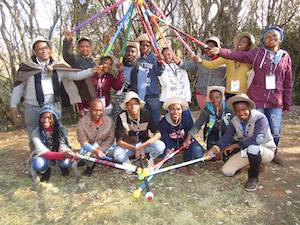 The week-long course helps the teachers to see their learners differently. Instead of viewing them as consumers of content, or as young people who are not achieving their potential, they see them as partners who can drive the change. Columba also runs one-day sessions for other learners who weren’t chosen for the academy, so they don’t feel left out and also join the movement.
The week-long course helps the teachers to see their learners differently. Instead of viewing them as consumers of content, or as young people who are not achieving their potential, they see them as partners who can drive the change. Columba also runs one-day sessions for other learners who weren’t chosen for the academy, so they don’t feel left out and also join the movement.
These youngsters then identify five problems, and recruit other students onto committees to resolve them. An infrastructure committee might physically replace broken windows, repair desks, clean up vandalism and clean the toilets, for example.
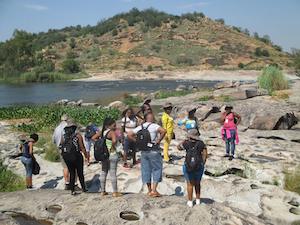 The programme also reinspires the teachers, with many taking further qualifications or getting promoted because of their rekindled spirit. Principal Fari Rufetu of Etwatwa Secondary School in Benoni says Columba’s six-day academy triggers an “enlightening metamorphosis” that every teacher or corporate leader should experience. “By going through the academy’s exercises you discover yourself,” he says. “My management style has totally changed. It’s affected me as a headmaster and would affect the manager of any company.” Rufetu says it showed him that successful education is about much more than good grades. “It opened my brain to see that it’s not about the A students. It’s about developing them to become useful in the community.”
The programme also reinspires the teachers, with many taking further qualifications or getting promoted because of their rekindled spirit. Principal Fari Rufetu of Etwatwa Secondary School in Benoni says Columba’s six-day academy triggers an “enlightening metamorphosis” that every teacher or corporate leader should experience. “By going through the academy’s exercises you discover yourself,” he says. “My management style has totally changed. It’s affected me as a headmaster and would affect the manager of any company.” Rufetu says it showed him that successful education is about much more than good grades. “It opened my brain to see that it’s not about the A students. It’s about developing them to become useful in the community.”
Etwatwa’s three-year involvement has led to dramatic changes. A third of the teachers used to consistently arrive late, and punctuality has been restored. The school was in a litter-filled area and the learners found sponsors so they could buy a dustbin for every classroom. Some have started visiting disabled and elderly people in their local community. Parents noticed the remarkable difference, and parents' attendance at meetings has risen from a paltry 30% to 80%.
While results are hard to measure in concrete terms, Columba says the youngsters who attend its academy tend to outperform the national average in their academic grades, and 75% go on to university or find employment. Some have been offered jobs by the company that sponsored their schools, thanks to links created during the programme.
For more details, see http://www.columba.org.za
